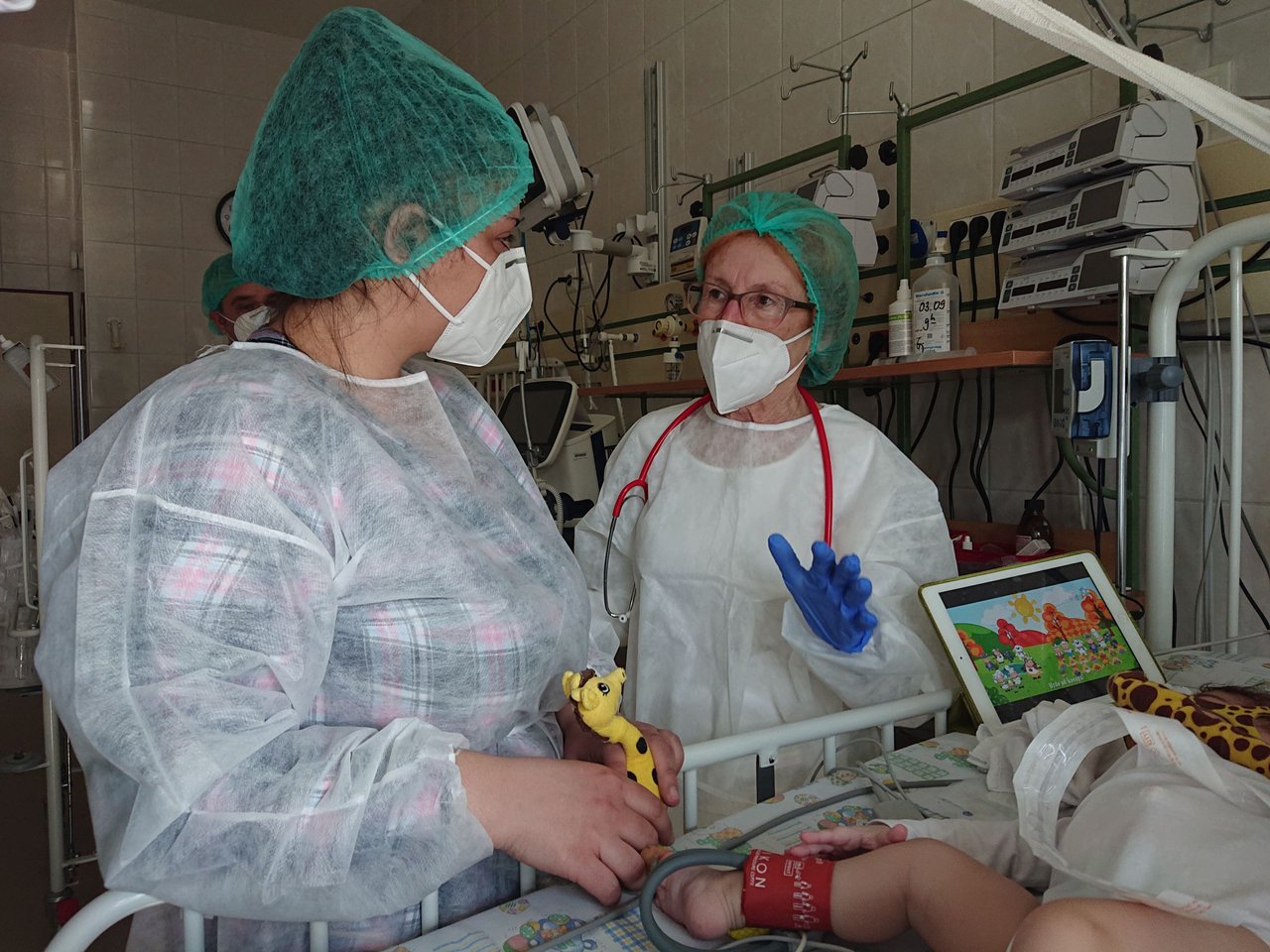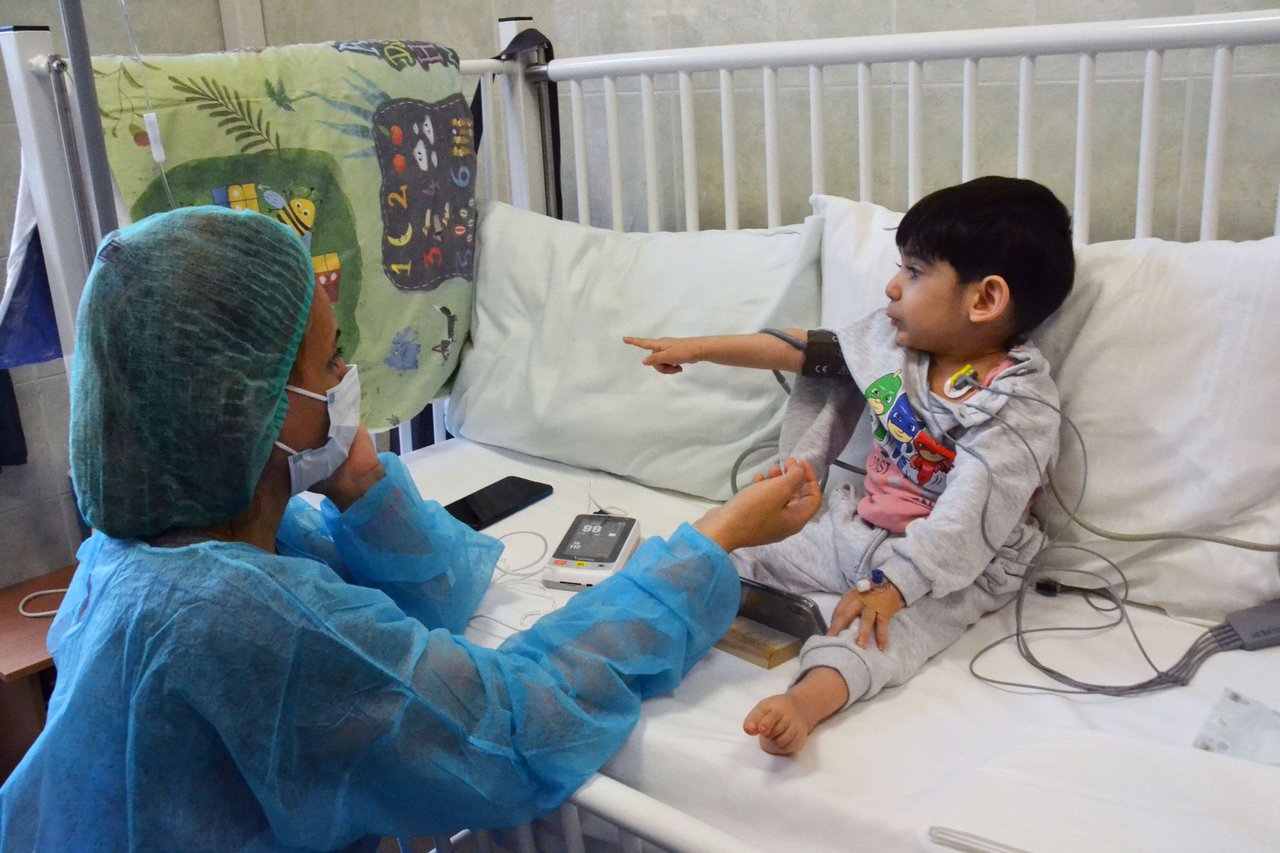Ten children suffering from SMA has been treated at Bethesda Children Hospital. In the past one and a half year two Hungarian, four Slovakian, one Dutch, one Transylvanian, one Turkish and one Hungarian living in Serbia has been treated with gene theraphy. This Reformed institution in Budapest has the most experience with this treatment in Europe.

SMA (Spinal Muscular Atrophia) is an extremely rare genetic disorder which affects only one in eight to ten thousand people. The body does not produce the protein that protects muscle cells, so muscles slowly deteriorate. Muscles are needed not only for movement, but also for breathing and swallowing. The treatment is one of the most expensive ones in the world, which helps effectively to those who are in critical condition.
The 21st century brought new perspectives to the treatment of the disease. First the gene-modifying therapy became available in 2016 and since 2019 gene-replacing treatment is used by doctors. This means that those genes responsible for the disease, but missing from cells are brought into the patients’ body. Now ten children received the treatment, and this week a Hungarian boy living in Serbia, Olivér Pál Gajódi got the the medicine.
Reassuring Results
“Two children don’t at all, and one only needs breathing support at night. Two children’s swallowing function is working again to,” Borbála Mikos tells the reassuring experiences. The medical director of the hospital says that those children, who didn’t suffer damage to swallowing function still has it, eat independently and developing well. “Their freedom and activity during the day increased, which helps their mental development greatly.

Development occuring in the treated children’s movements is diverse depending on what state they began from. “There are those who sit and play independently, and those who became able to turn and crawl, all of them purposefully use and move their upper limbs and fingers. There are also children who have taken the first steps since then,” explains the head of the gne therapy working group.
Healing is a long process
Children’s chances of development also depend on how early they receive the gene therapy. The age limit is two - two and a half years according to current recommendations. Thus, therapy cannot wait, so the Coronavirus pandemic is an additional challenge for the hospital and those waiting for treatment. Border crossings, test made during close ups, and ensuring maximum isolation for the sake of the use of the medicine for immuncompromised children are all tasks that should be handled with the utmost care and speed.
Bethesda places great emphasis on isolating the child and their parents to avoid infections. In the days before treatment, the child’s immune system is weakened for the medicine to be effective. Injections and control examinations are performed according to strict isolation rules.
As a result of the therapy, the muscles affected by SMA begin to develop, resulting in significant improvements in movement. Changes in the state of movement are constantly monitored by physiotherapists before the start of gene therapy and after the receiving it and developed with individual practice. After the medical therapy the improvement of the state of movement can be enhanced by the corresponding complex development. The Reformed hospital undertakes to follow the children in the long run.
Hope for the ones waiting for treatment
Olivér, who arrived from Serbia is still in Bethesda, as his treatment took place on March 9. “Everyone considered him inescapable in Serbia, as he could not be removed from the ventilator, so he could not receive gene therapy either. He arrived to Bethesda to assess his condition where after weeks of struggle, it was possible to remove him from the ventilator and thus he could receive the medicine, according to Olivér’s Serbian doctor, Professor Nenad Barisic, a cardiologist. “I was able to participate in the injection and be part of a fantastic professional teamwork where everything is done for the benefit for the patient. This is a great hope not only for Hungarian children, but also for Serbian children waiting for to be treated.”
“The mother of the Dutch child, struggling with tears when saying goodbye before returning home, said: From the outside, we seem to have come from a more advanced health care facility, where, however, they gave up on Jayme. Only here in Bethesda can our little boy get the chance for a new life. We will never forget what we got here…”
Two weeks after the treatment, the mother of the Turkish Ali said: “They performed a wonder to my child here, which can be seen on Ali day by day.”
The Success of Consolidation
The Reformed institution is particularly proud of the cross-border co-operation that took place during the pandemic in Slovakia, Romania, Turkey and Serbia. Ahmet Akif Oktay, the ambassador of Turkey and Barbara Avdalovic, secretary ambassador to Serbia also thanked their compatriots for their high level of treatment and provided further cooperation for their support.
György Velkey, Director-General of the hospital emphasized that “gene therapy treatment is a success of collaborations, as different cultures and countries have spoken out for the benefit of sick children. This success could only be achieved through the cooperation of diplomats, doctors and nurses, authorities, pharmaceutical wholesalers, economic and legal professionals and chairties.”
They are already preparing for the eleventh treatment, in the case of the Hungarian Zsombor Burinda. Anna Szálcevics, who also came from across the border and loves in Transcarpathia, could be the twelfth SMA child who can get a chance for a new life in Bethesda if the financial coverage of the treatment is established.
Translated by Csenge Kiss
Proof read by Claire Weihe